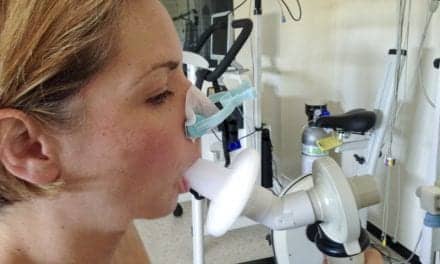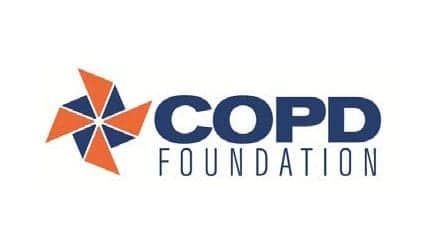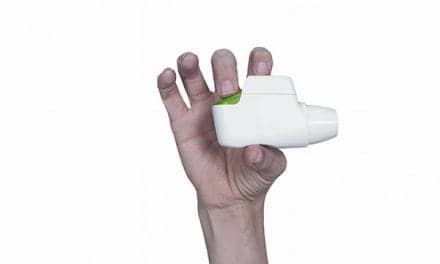COPD patients who were given a pedometer and participated in a web-based intervention that helped them set physical activity goals, provided feedback and disease self-management education, and offered a community forum were less likely to experience an acute exacerbation (AECOPD) than those patients who received only the pedometer, according to a randomized, controlled trial presented at ATS 2019.
Researchers enrolled US veterans with stable COPD. Patients received either a pedometer alone (control) or a pedometer plus access to an interactive website with feedback, goal-setting, disease education, and an online community forum (ESC intervention).
Participants were surveyed on their exercise self-efficacy at baseline and 3 months post-intervention. According to results, there were no significant differences in age (69 versus 68 years), education (53% versus 49% with at least some college), FEV1% predicted (66.4% versus 60.2%), baseline self-efficacy (67.5 versus 60.9), or average daily step count at baseline (3905 versus 3408).
There was a significant interaction (p=0.016) between baseline self-efficacy and randomization group on change in daily step count (Figure 1). Only in the control group was there a significant relationship between baseline self-efficacy and change in PA (p=0.006). In the intervention group, all participants increased their average daily step count regardless of baseline self-efficacy (p=0.655).
Interestingly, among those assigned to the intervention, the reduction in exacerbations over a year of followup occurred despite the fact that their level of physical activity at 6 and 12 months was no higher than the pedometer-only patients.
“The use of an internet-mediated PA intervention mitigates the effect of low exercise self-efficacy at baseline on change in step count,” the researchers concluded.










